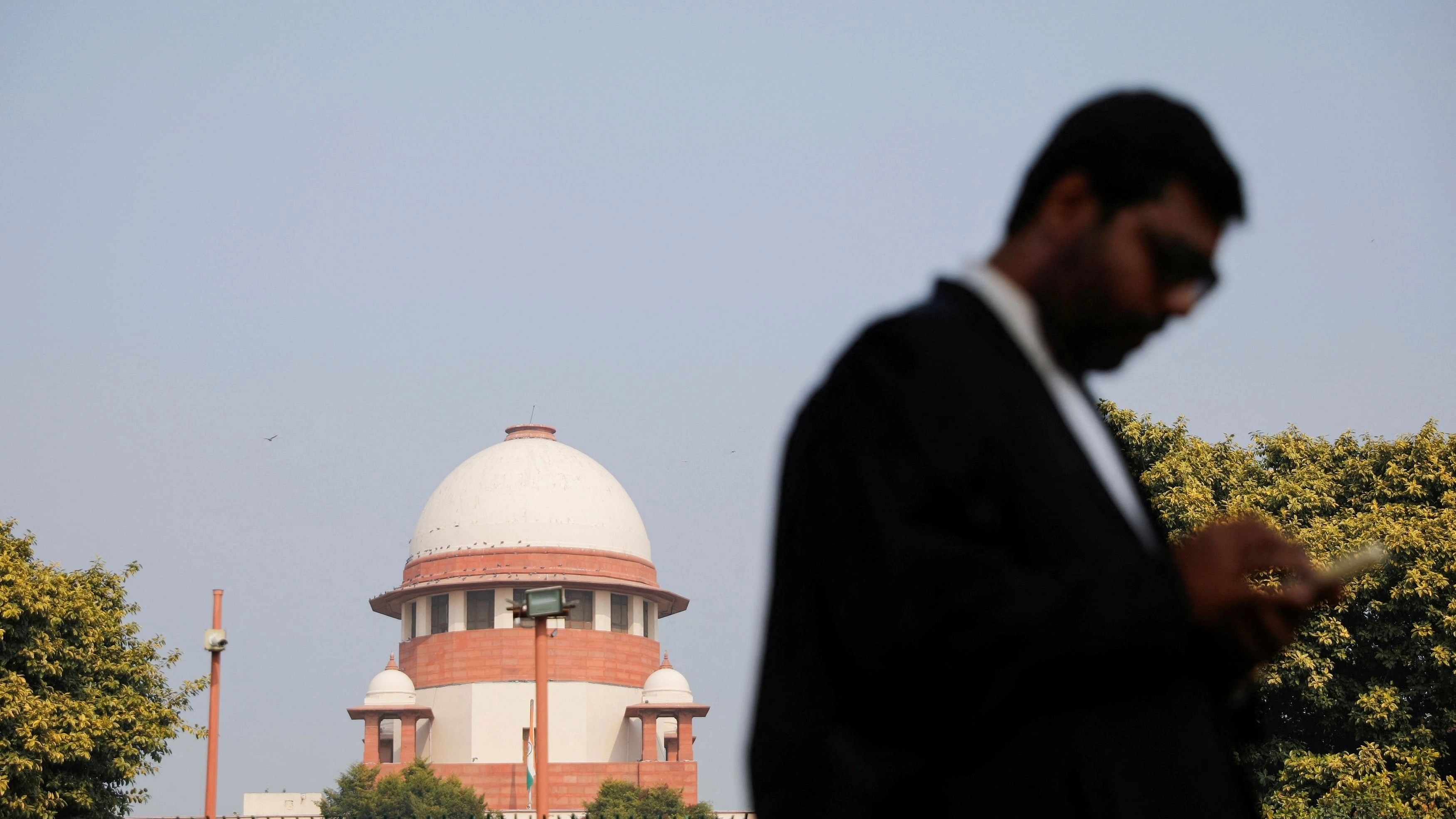
Supreme Court of India.
Credit: Reuters Photo
New Delhi: The Supreme Court Wednesday told markets regulator SEBI to complete its probe into allegations made by US short seller firm Hindenburg Research, against the Adani Group within three months.
In a relief to Adani group, the top court, however, found no ground to transfer the case to the CBI or Special Investigation Team to probe into charges of "fraud, misgovernance and stock price manipulation".
“SEBI has completed 22 out of the 24 investigations into the allegations levelled against the Adani group. Noting the assurance given by the Solicitor General (Tushar Mehta) on behalf of SEBI, we direct SEBI to complete the two pending investigations expeditiously, preferably within three months,” a bench led by Chief Justice of India D Y Chandrachud said.
The bench said that the status report and the details of the 24 investigations does not indicate inaction by SEBI.
“In fact, to the contrary, the course of conduct by SEBI inspires confidence that SEBI is conducting a comprehensive investigation,” the bench, also comprising Justices J B Pardiwala and Manoj Misra, said.
The court, which disposed of a batch of PILs filed by advocate Vishal Tiwari and others, said SEBI and the central investigative agencies should probe into whether the loss suffered by Indian investors due to the conduct of Hindenburg Research and any other entities in taking short positions involved any infraction of the law and if so, suitable action should be taken.
The court said no apparent regulatory failure can be attributed to SEBI and there is prima facie no deliberate inaction or inadequacy in the investigation by it.
The bench held that there is no valid ground raised to direct the SEBI to revoke its amendments on Foreign Portfolio Investment (FPI) and Listing Obligations and Disclosure Requirements (LODR) regulations.
The court rejected a report by NGO Organised Crime and Corruption Reporting Project (OCCRP) in August, 2023 alleging that business partners of the Adani family made large investments in its shares through "opaque" Mauritius funds.
“The reliance placed by the petitioner on the OCCPR report to suggest that SEBI was lackadaisical in conducting the investigation is rejected. A report by a third-party organisation without any attempt to verify the authenticity of its allegations cannot be regarded as conclusive proof," the bench said.
The bench said such reports by “independent” groups or investigative pieces by newspapers may act as inputs before SEBI or the expert committee and they cannot be relied on as conclusive proof of inadequacy of the investigation by SEBI.
“Nor, as the petitioners state, can such inputs be regarded as credible evidence. The veracity of the inputs and their sources must be demonstrated to be unimpeachable,” the bench said.
The court also rejected a charge of conflict of interest with members of the court-appointed expert committee led by former judge Justice Abhay Manohar Sapre.
"The allegations of conflict of interest against members of the Expert Committee are unsubstantiated,” the bench said.
With regard to a plea for transfer of probe, the bench said it has the power to do so but “such a power is exercised in extraordinary circumstances when the competent authority portrays a glaring, wilful and deliberate inaction in carrying out the investigation. The threshold for the transfer of investigation has not been demonstrated to exist,” the CJI wrote, in 46-page judgment.
The apex court said it finds no merit in the argument that the FPI Regulations, 2014 have been diluted to facilitate mischief.
“The amendments, far from diluting, have tightened the regulatory framework by making the disclosure requirements mandatory and removing the requirement of it being disclosed only when sought. The disclosure requirement, therefore, is now at par with PMLA,” the bench said.
The apex court said that its power to enter the regulatory domain of SEBI in framing delegated legislation is limited and it must refrain from substituting its own wisdom over the regulatory policies of SEBI.
“The scope of judicial review when examining a policy framed by a specialised regulator is to scrutinise whether it violates fundamental rights, any provision of the Constitution, any statutory provision or is manifestly arbitrary,” the bench explained.
The bench also took into consideration the fact that stocks of the Adani group witnessed volatility in the aftermath of the publication of the Hindenburg Report.
“This volatility was examined by the expert committee, which after examining the facts presented by SEBI and engaging with market participants, opined that the impact of the Adani group-related events on the overall market was low,” the court said.
The bench said the Union government and SEBI should constructively consider the suggestions of the expert committee. “The Government of India and SEBI will peruse the report of the expert committee and take any further actions as are necessary to strengthen the regulatory framework, protect investors and ensure the orderly functioning of the securities market,” the bench said.
With regard to public interest jurisprudence, the bench said, “Petitions that lack adequate research and rely on unverified and unrelated material tend to, in fact, be counterproductive. This word of caution must be kept in mind by lawyers and members of civil society alike”.
The apex court had constituted the expert committee in March 2023.
The committee, in its report submitted in May, 2023 said the allegations of stock price manipulation or violation of MPS norms by Adani Group companies cannot be proved at this stage.
